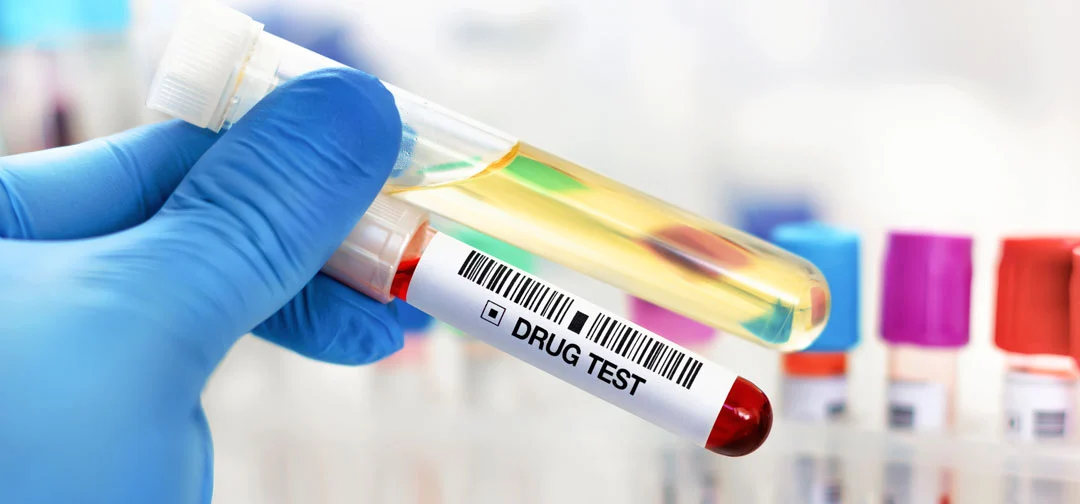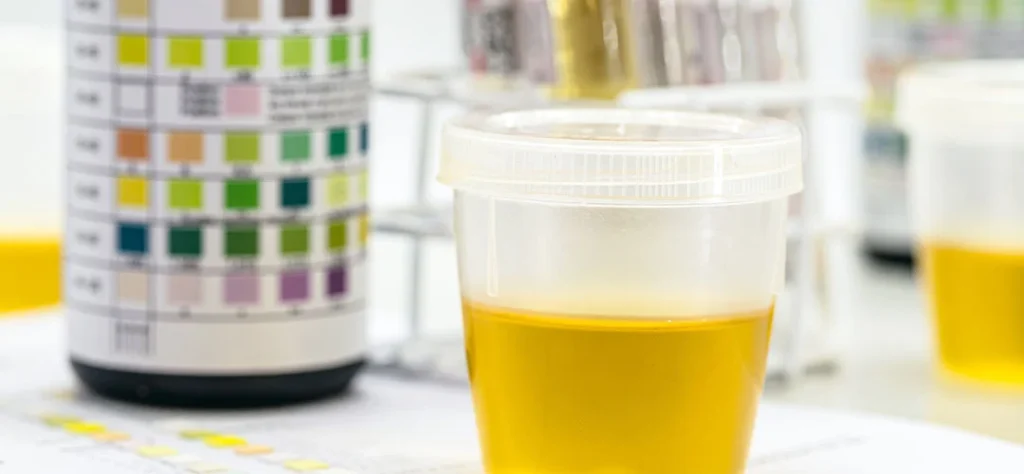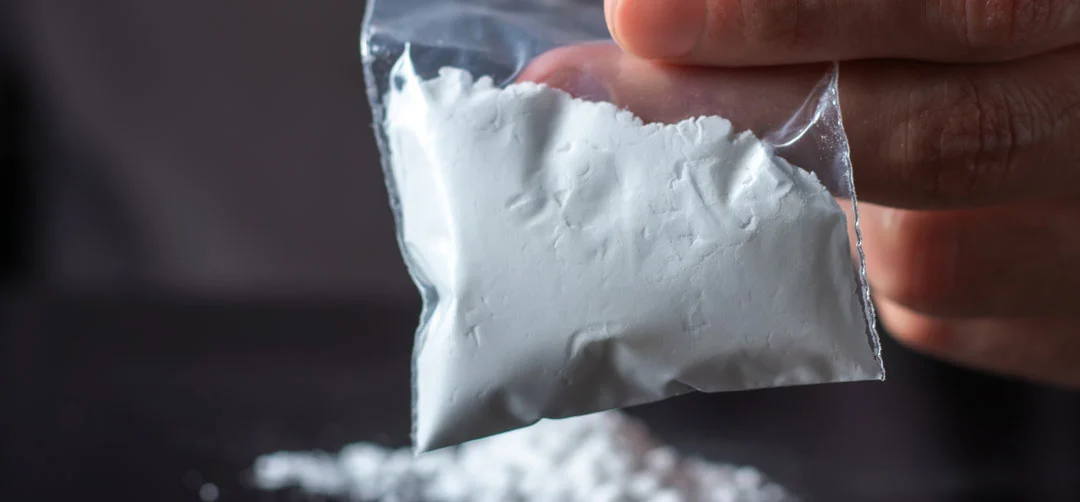Get Details on the Half Life and Duration of Cocaine in the Body
I remember my first job interview. Things went well, up until they told me I had 24 hours to report to an outside facility for a drug test. While I wasn’t a habitual user, I did attend a party that weekend. And with all my friends offering me bumps, it wasn’t long until I gave in. After giving my sample, I sat there sweating and wondering, “How long does coke stay in your system?”
The amount of time that cocaine can be detected depends on the drug test being administered. Saliva, urine, and blood tests have a short period of detection, but hair follicle tests can detect cocaine months after use. Detection also depends on factors like cocaine metabolism, drug use habits, and water intake.
Keep reading to learn about how long cocaine stays in your system, passing a drug test after cocaine use, and what might happen if you don’t pass. I’ll also talk about how to tell if this party drug is becoming a problem and how South Shores Recovery can help if cocaine use is negatively impacting your life.
How Long Does Coke Stay in Your System? The 4 Most Common Testing Types
Drug tests work by detecting cocaine metabolites in your blood, sweat, urine, saliva, or hair. The amount of time that cocaine can be detected depends on which test is being administered. Cocaine passes through your system more quickly than fentanyl and other opioids, but its metabolites (which are detectable) can linger for just as long a time.
Urine, saliva, and blood testing all have a short detection window. Hair testing has a longer detection window.
- Blood tests detect cocaine and its metabolites can be detected up to 1-2 days after your last dose.
- Urine tests also have a relatively short detection window, being detected for 3 days to a week in the average person and up to two weeks in a heavy user.
- Saliva tests detect cocaine for 2-3 days after use.
- Hair tests have the longest detection window, with hair follicles testing positive for cocaine 90 days or longer after use. Hair strand tests also detect cocaine for a longer duration.
It’s important to keep in mind that these are averages. Several factors including individual metabolic rates, kidney function, liver function, other drug use, and cocaine habits affect cocaine staying or leaving your system.
In chronic users, it can take twice as long for your body to eliminate cocaine metabolites. The detection window is also longer when cocaine is combined with alcohol. If you are wondering how long does cocaine stay in your system, at-home drug screens can reassure you that you are clean.
How Do Cocaine Drug Tests Work?

When you use cocaine, enzymes in your blood and liver metabolize the drug and produce byproducts called metabolites. These metabolites are detectable in hair follicles, hair strands, sweat, saliva, blood, urine, and breast milk.
Hair, blood, urine, and saliva tests check for several metabolites associated with drug use. The most common metabolite tested for cocaine detection is benzoylecgonine. Its urine concentration is 50 to 100 times greater than cocaine, making it easier to detect. Some tests also detect ecgonine methyl ester, the second most prominent metabolite after cocaine use.
Things Affecting How Long Cocaine Stays in Your System
Factors influencing cocaine metabolism are physical activity level, water intake, sleeping habits, diet, individual metabolism, health, and cocaine use habits. An individual’s system and the function of your kidney and liver can also play a significant role in whether cocaine is metabolized faster or slower.
Furthermore, cocaine has longer detection times if you use it with alcohol or other drugs. With so many various factors influencing how long cocaine is detectable, the best way to pass a drug test is to avoid substance abuse altogether.
The Dangers of Mixing Cocaine with Alcohol
Drinking alcohol while using cocaine produces the metabolite cocoaethylene. This substance is more toxic than cocaine. It also has a longer half-life, meaning cocaine metabolites are detectable for longer. Exact timing can vary greatly, but research shows mixing the two substances can double the amount of time cocaine will remain detectable in your system.
How Long Until I Can Pass a Drug Test After Doing Cocaine?
The amount of time it takes to pass cocaine drug testing can be anywhere from 1-2 days up to 90+ days after using. Various factors like the type of test being administered, individual metabolic rate and overall health, how frequently you use cocaine, its potency, how hydrated you are, and your dietary habits can all play a role in cocaine elimination.
How to Make Cocaine Leave Your System Faster
Anyone who has used marijuana, stimulants, or other drugs finds themselves wondering if they can make cocaine leave their system faster for a drug test. Some people try detox drinks, flushing with niacin, or drinking excessive amounts of water. Detox drinks are not regulated and may not clean your system in time.
Niacin produces uncomfortable side effects and can sometimes be detected. And, if you drink too much water before a drug test, the sample might be too diluted and you may have to re-test.
There is no guaranteed way to pass a drug test after using cocaine, making it important to take control of cocaine addiction before it ruins your life. Using cocaine puts you at greater risk of employment, legal, and financial issues.
Cocaine addiction also contributes to physical health problems like high blood pressure and liver damage. Plus, higher doses or even small doses contaminated with substances like fentanyl can be deadly.
What to Expect During Drug Testing for Cocaine

Drug testing can look a little different depending on the reason behind it. If you are being drug tested before employment, for example, you usually have to go to a facility no more than 24 hours after your interview. For people being drug tested under the supervision of a probation officer or after an accident at work, you might be immediately drug tested.
It is not uncommon for drug tests to be carried out onsite. You might know immediately whether you passed, or the sample might be sent to the lab for more thorough testing. Most places also test the temperature of the sample, to ensure it is fresh.
Does Synthetic Urine Work for Drug Tests?
Many people have success with synthetic pee for urine tests. However, the sample must be kept at a certain temperature. If the temperature is outside the parameters for the test, you’ll need to produce another sample.
In certain situations, such as probation or parole, you also might be monitored more closely, making it hard to use a synthetic urine sample.
What Happens if I Fail a Drug Test?
The consequences of failing a drug test depend on the reason the test was administered. Some people lose employment after an accident at work involving substance use. If you are taking a drug test for probation or parole, failing could cause legal troubles or result in jail time.
How Long Do the Effects of Cocaine Last?
Cocaine works quickly to stimulate the central nervous system. However, it has a short half-life compared to drugs like marijuana and an even shorter high. The short-lived high when taking cocaine makes it easy to seek out more cocaine as you start to come down.
The amount of time you’ll feel its effects varies depending on your metabolic rate and how it is ingested. The intense, euphoric high associated with cocaine use lasts 15-20 minutes when smoking or injecting the drug, 45-90 minutes when snorting it, or 90 minutes after oral use.
You may still feel jittery and have trouble sleeping for hours after your last dose, though. This can be longer if you are a habitual user, as you’re likely to experience cocaine withdrawal symptoms.
Why Can’t I Sleep After Using Cocaine?
Even though the intense euphoria and alertness associated with cocaine fade quickly, it can still affect you for hours after your last dose. Some things it affects are your appetite and your ability to sleep. It can take hours after your high wears off before you can finally sleep.
Even though it can be tempting to use alcohol or other substances to try and sleep, this can create a dangerous situation. Combining cocaine with other drug use is also dangerous, as it’s impossible to know how the drugs will interact in your body.
Managing Cocaine Comedown and Withdrawal

Cocaine use affects levels of dopamine and serotonin in the brain. It also causes a buildup of dopamine on receptors, which causes the feelings of euphoria associated with the drug. Once its effects start to wear off, most people feel achy, fatigued, irritable, and depressed.
If you are struggling with cocaine addiction, you also may experience withdrawal symptoms like restlessness, exhaustion, extreme hunger, vivid dreams and sleep disturbances, agitation, and extreme depression.
After experiencing the unpleasant symptoms of coming down from cocaine, you might be wondering if the high is worth it. Spoiler alert: it is not. Cocaine recovery is much, much more rewarding, not to mention sustainable.
Seize this moment and seek professional guidance. Even if you aren’t sure you are ready to quit, there’s no harm in seeking more information about rehab programs like South Shores Recovery.
Get Support for Cocaine Detox and Recovery at South Shores
If you are struggling with cocaine addiction, you are not alone. The number of Californians killed by stimulants quadrupled between 2011 and 2019 in California. With statistics like these, it’s more important than ever to get the help that you need before cocaine use ruins your life.
Not only is there a risk of death, but it can also cause legal problems, financial troubles, strained relationships, and harm your overall health.
You can find the help you need to start your recovery journey at South Shores. Cocaine is a powerful stimulant drug with high addictive potential – but you can be strong enough to overcome it with the right support. South Shores Recovery offers medical detox, inpatient and outpatient rehab services, and mental health treatment that can help you overcome cocaine addiction.
You are not alone- give our welcoming admissions team a call today.


Recent Comments